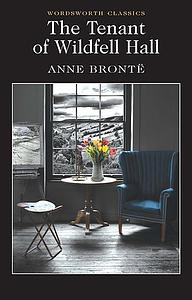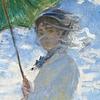Take a photo of a barcode or cover
challenging
emotional
relaxing
slow-paced
Plot or Character Driven:
Character
Strong character development:
Yes
Loveable characters:
Yes
Diverse cast of characters:
No
Flaws of characters a main focus:
Yes
emotional
reflective
slow-paced
emotional
slow-paced
Plot or Character Driven:
Character
Strong character development:
No
Loveable characters:
Yes
Diverse cast of characters:
No
Flaws of characters a main focus:
No
challenging
dark
reflective
slow-paced
Plot or Character Driven:
A mix
Strong character development:
Yes
Loveable characters:
Yes
Diverse cast of characters:
Yes
Flaws of characters a main focus:
Yes
emotional
lighthearted
relaxing
slow-paced
Plot or Character Driven:
Plot
Strong character development:
Yes
Loveable characters:
Yes
Diverse cast of characters:
N/A
Flaws of characters a main focus:
N/A
emotional
hopeful
inspiring
reflective
medium-paced
Plot or Character Driven:
A mix
Strong character development:
Yes
Loveable characters:
Yes
Diverse cast of characters:
No
Flaws of characters a main focus:
Yes
challenging
dark
emotional
reflective
slow-paced
Plot or Character Driven:
Plot
Strong character development:
Yes
Loveable characters:
Yes
Flaws of characters a main focus:
Yes
dark
emotional
reflective
medium-paced
Plot or Character Driven:
Character
Strong character development:
Complicated
Loveable characters:
Complicated
Diverse cast of characters:
Yes
Flaws of characters a main focus:
Yes
When a mysterious widow and her young son move into previously-abandoned Wildfell Hall, the small community is full of rumors. Gilbert Markham is at first put-off by the widow's reserve but he's inevitably drawn by her beauty and goodness. Helen remains reserved, despite his best efforts at courting both her and her son. Eventually, Helen's story is revealed through journals and letters.
4.5 Stars.
Oh my goodness. Why do we pay less attention to Anne Brontë than the other sisters? I liked this book infinitely more than Wuthering Heights! I'll still give Jane Eyre the edge as my favorite book by a Brontë, but it's a closer thing than I expected.
Anne wrote both a captivating story and a searing indictment of "bad boys" and their treatment of women, all in one book. When she received some criticism, she doubled down! My copy began with a "Preface to the Second Edition," in which Anne addresses her critics.
"To represent a bad thing in its least offensive light is, doubtless, the most agreeable course for a writer of fiction to pursue; but is it the most honest, or the safest? Is it better to reveal the snares and pitfalls of life to the young and thoughtless traveller, or to cover them with branches and flowers?"
You tell 'em, Anne!
And here's the thing. We all know these characters. I'm sure that in England's polite society in 1848, no one spoke openly about alcoholism, addiction, or domestic abuse, but it was happening. They were probably whispering about it behind their fans and avoiding the poor victims. Anne Brontë confronted the issues head-on. We still read about these same issues in the news today, over 150 years later.
It was obvious to me, and probably most other modern readers, exactly what was going on from the beginning. But the events of the novel would have been shocking to Anne's contemporaries. Even guessing as much as I did, I thoroughly enjoyed reading the 500 pages of this book. It did start to drag just a bit through the middle but then it picked up again and I was racing for the ending.
And how do these classic writers stick the endings so well? Austen, the other Brontë sisters, I think Gaskell--when I near the end I simultaneously want to finish so I know what happens but also want to draw out the suspense and beautiful prose even longer. Modern novelists could learn a thing or two from these authors.
I'll be seeking out more of Anne Brontë's work and highly recommend this classic to other readers.
4.5 Stars.
Oh my goodness. Why do we pay less attention to Anne Brontë than the other sisters? I liked this book infinitely more than Wuthering Heights! I'll still give Jane Eyre the edge as my favorite book by a Brontë, but it's a closer thing than I expected.
Anne wrote both a captivating story and a searing indictment of "bad boys" and their treatment of women, all in one book. When she received some criticism, she doubled down! My copy began with a "Preface to the Second Edition," in which Anne addresses her critics.
"To represent a bad thing in its least offensive light is, doubtless, the most agreeable course for a writer of fiction to pursue; but is it the most honest, or the safest? Is it better to reveal the snares and pitfalls of life to the young and thoughtless traveller, or to cover them with branches and flowers?"
You tell 'em, Anne!
And here's the thing. We all know these characters. I'm sure that in England's polite society in 1848, no one spoke openly about alcoholism, addiction, or domestic abuse, but it was happening. They were probably whispering about it behind their fans and avoiding the poor victims. Anne Brontë confronted the issues head-on. We still read about these same issues in the news today, over 150 years later.
It was obvious to me, and probably most other modern readers, exactly what was going on from the beginning. But the events of the novel would have been shocking to Anne's contemporaries. Even guessing as much as I did, I thoroughly enjoyed reading the 500 pages of this book. It did start to drag just a bit through the middle but then it picked up again and I was racing for the ending.
And how do these classic writers stick the endings so well? Austen, the other Brontë sisters, I think Gaskell--when I near the end I simultaneously want to finish so I know what happens but also want to draw out the suspense and beautiful prose even longer. Modern novelists could learn a thing or two from these authors.
I'll be seeking out more of Anne Brontë's work and highly recommend this classic to other readers.
a really good story that shows a lot about how women really lived and how they were treated back then - demeaned and disregarded in their emotions. helen’s story is likely very similar to many real women at the time of her living… disrespected and mistreated by her husband.





